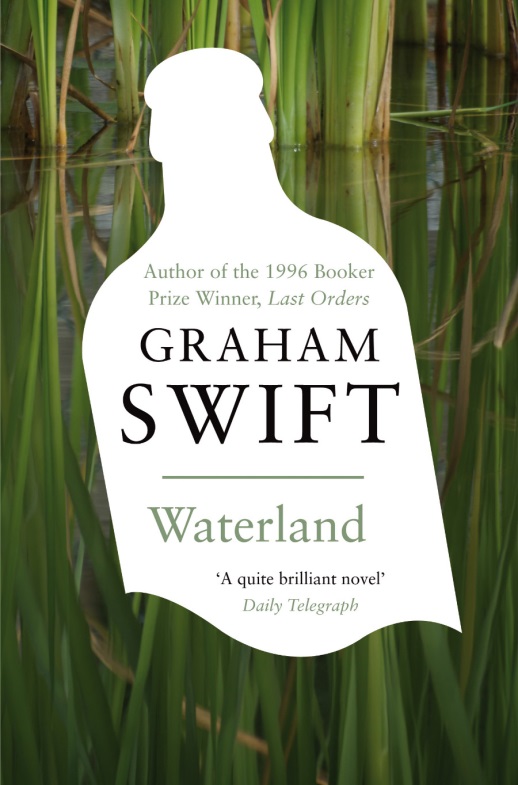by Colin Williams
“And since a fairy-tale must have a setting, a setting which, like the settings of all good fairy-tales, must be both palpable and unreal, let me tell you about about the fens.”
2013 marks 30 years since Graham Swift published his Booker-nominated novel Waterland. By my calcuations that means 2013 also marks 25 years since my English teacher, who we shall call Mr Bickerton (because that was his name) first threw a copy at me and said “Williams, read this. It’s an absolute belter”.
I did. It was. It is.
The back cover reviews of my battered copy suggests that much like Moby Dick is the defining account of whaling, Waterland is the equivalent for the fens: that seemingly endless, starkly beautiful and (to many) forbidding and sodden flatland.
I found out the truth of it quickly because when the insistent Mr Bickerton first introduced me to Waterland we were in the fens. I lived there, was born there, grew up there and learned to swim in its silty waters. I lived and breathed this restless, impermanent landscape. I could leave my front door and cycle the straight roads that towered above the peat-shrunken, reclaimed farmland. I inhabited a place of rusting sluice gates, abandoned wind pumps, rippling meres, Roman-straight rivers and the endless vanishing points of the silver ribbons of drainage ditches and canals. I was living in this novel.
You should read it. I could give a quick precis of the plot but, put simply, Waterland is about the weight of history. I don’t know what it is that brought Graham Swift, a Londoner, to the fens but I think I understand completely and clearly what compelled him to write about it. It’s a place that carries history heavily in its silt and topography. The modern-day fens are largely there because of humans but it is a landscape over which we hold a tenuous, slippery grip. Like the place itself the book is large and spread out encompassing in its watery borders every story of madness, disaster, incest, love, incredulity, suicide, black fields and brooding intensity.
Swift understood that fenland is a highly storied place. It’s full of them and they flow – sluggishly and consistently – as surely as the water that’s still being pumped from the land. Morton’s Leam, Popham’s Eau, Eau Brink, the Old Bedford River, the New Bedford Sluice, Welches Dam: Every name reeking of the stories that accompany their construction. I once heard someone on the radio criticising Waterland for being “like a man in a pub telling a long story”. That’s not a criticism, it’s a compliment. That’s exactly how it should be. It’s the storytelling that matters, it’s how we make sense of difficult places.
Because the fens isn’t necessarily a place in which it’s comfortable to be. It can be utterly remorseless. There isn’t a single hiding place for our perceptions. Everything here is so immediate, definite and without compromise, softened and blunted by nothing. I know certain people that cannot spend time here because the unforgiving horizons and dizzying lines of perspective crawl into their brain and will not leave until they do.
Waterland, on every page, embraces this secrecy, this discomfort. In this respect there isn’t one page of Waterland that Graham Swift got wrong. He absolutely understands that the landscape is a palimpsest of itself. The generally unsavoury French novelist, journalist and politician Maurice Barres said “I am not free to think as I wish. I can only live in relation to the dead of my race. They, and my country’s soil, tell me how I should live.” Unsavoury he might have been but in Waterland we feel the same indefatigable drive of history behind the actions and outlooks of the people in it; the same feeling of impermanence.
So here’s to Graham Swift, the best pub storyteller of them all and the novel that made me fall in love with my home ground all over again. “Because they did not forget, in their muddy labours, their swampy origins; that, however much you resist them, the waters will return; that the land sinks; silt collects; that something in nature wants to go back.”
Colin Williams is a writer exploring the human relationship with nature and landscape. He’s also a naturalist, conservationist and wildlife tour guide and has been working with and in nature for over a decade. Most recently he has worked as writer-in-residence for WhaleFest 2012 exploring the complex themes of man and the ocean where he curated a new collection of writing about the sea from writers such as Simon Barnes, Ian McMillan and David Rothenberg. You can visit him at www.colin-williams.com.
